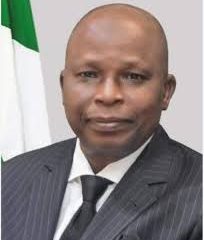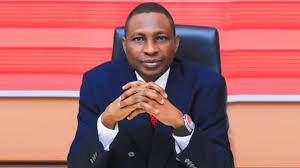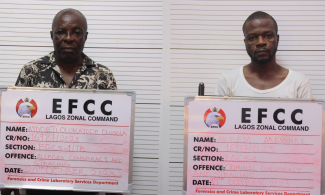THAT Nigeria is a democracy (at least on paper) or that Nigeria is governed by the rule of law (also at least on paper) is not in dispute. Nigeria has a constitution, the Constitution of the Federal Republic of Nigeria, 1999. Section 1, subsection (2) of the Constitution provides that “(1) This Constitution is supreme and its provisions shall have binding force on all authorities and persons throughout the Federal Republic of Nigeria.” The President swore to “discharge my duties to the best of my ability, faithfully and in accordance with the Constitution of the Federal Republic of Nigeria and the law…”
It is in the light of this solemn oath that we consider here the rigmarole involved in the appointment by President Muhammadu Buhari of the Secretary to the Government of the Federation (SGF), Mr. David Babachir Lawal (appointed in an acting capacity since August 27, 2015), and the Chairman of the Economic and Financial Crimes Commission (EFCC), Mr. Ibrahim Mustapha Magu (appointed in an acting capacity since November 11, 2015), both of whose appointments are subject to confirmation of the Senate. According to subsection (3) of the Economic and Financial Crimes Commission, 2004, “(3) The Chairman and members of the Commission other than ex-officio members shall be appointed by the President and the appointment shall be subject to confirmation of the Senate.”
The above provision is on all fours with the law which empowers the President to appoint the SGF. Nowhere in the 1999 Constitution or in any statute is it ever stated that the confirmation provision in the laws (i.e.either in the grundnorm of our legal system or in any other law), that the appointment of a public officer requiring Senate confirmation, is subject to a haggling over confirmation between the Senate and the Presidency.
According to law, the appointment of certain public officers by the President is contingent on the Senate’s confirmation. Where the Senate refuses confirmation, that is, and should be, the end of the matter. This is so because the Senate’s confirmation or refusal to confirm a nominated public officialdepends on the report of the Department of State Security (DSS). In the case of Mr. Babachir Lawal, for example, the DSS returned an adverse report, similar to the report on Colonel Sambo Dasuki. Similarly, the DSS, in its 14-paragraph Report on Mr. Magu, dated October 3, 2016, and duly signed by one Folashade Bello, rejected Magu’s nomination and returned same “to the President for further action.” That, as far as the law is concerned, should be the end of such nomination. But this is not to be.
It transpired that the presidency made its own investigations on the affected officials, found them “not guilty” and re-presented their nominations! The presidency reportedly gave the lie to the re-representation of the officers’ nominations. If the denial is to be taken seriously, why are the said officials still in office? It must be noted that the rejection by the Executive of the DSS’s report to the Senate on nominated officials is unprecedented.
At a time this administration says it is waging a war against corruption in the country, it is strange that the presidency should insist on retaining in office officials whose collective integrity has been severely tainted by the Department of State Security, an important security/moral agency of the Executive arm of government.We dare warn that the Senate should not go back on its decision (based on the DSS Reports) to reject the nomination of the officials affected by this shameful political, even if, illegal see-saw between the Executive and the Legislature.

 Health & Fitness3 days ago
Health & Fitness3 days ago
 Featured7 days ago
Featured7 days ago
 Education1 week ago
Education1 week ago
 Business1 week ago
Business1 week ago
 Aviation5 days ago
Aviation5 days ago
 Business7 days ago
Business7 days ago
 Crime1 week ago
Crime1 week ago
 News6 days ago
News6 days ago











